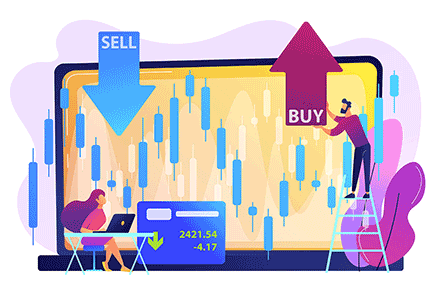In the vast world of Forex trading, brokers play an indispensable role by providing traders access to the currency markets. However, like any service provider, they don’t offer this service for free. Forex Brokers have a variety of ways in which they charge traders for their services. Understanding these fees and commissions is crucial for any trader who wants to manage their trading costs effectively. In this article, we’ll explore the different types of fees and commissions Forex brokers might charge and what traders should be on the lookout for.
Spread
The most common fee in Forex trading is the 'spread'. It is the difference between the buying (bid) and selling (ask) price of a currency pair.
- Fixed Spread: Remains constant regardless of market conditions.
- Variable Spread: Can change based on market volatility and liquidity. During major economic announcements or events, the spread might widen.
Commission
Some brokers charge a commission on trades in addition to, or instead of, the spread. This is especially common with Electronic Communication Network (ECN) brokers who offer tighter spreads but charge a fixed commission per trade.
Swap or Rollover Fees
When traders leave positions open overnight, they might either earn or pay interest, depending on the interest rate differential between the two currencies in the pair. This fee (or sometimes income) is called the 'swap' or 'rollover' rate.
- Swap-Free Accounts: Some brokers offer swap-free accounts, primarily for religious reasons, where no interest is paid or earned.
Deposit and Withdrawal Fees
While many brokers allow free deposits and withdrawals, some might charge fees, especially when using specific payment methods. It's essential to be aware of these fees as they can add up, especially if you frequently move money in and out of your trading account.
Inactivity Fees
If a trading account is dormant for an extended period (often a few months), brokers might charge an inactivity fee. If you plan to take a break from trading, it's wise to check if your broker has such a charge.
Miscellaneous Fees
These can include fees for account administration, receiving paper statements, using premium tools or platforms, or accessing certain reports.
What to Consider When Evaluating Fees:
-
Trading Style and Frequency: A day trader executing multiple trades daily might prioritize tight spreads, while a long-term position trader might be more concerned about swap rates.
-
Total Cost: Consider the cumulative cost. A broker might offer low spreads but charge high withdrawal fees. Look at the overall fee structure rather than just one component.
-
Transparency: Reputable brokers clearly list their fees and commissions on their websites. Always read the fine print, and if a broker isn't transparent about their charges, consider it a red flag.
Forex broker fees and commissions might seem intricate at first, but understanding them is pivotal. These charges can significantly impact trading profitability, especially for high-frequency traders. As always, it’s recommended to read the terms and conditions when opening a trading account and periodically review them to ensure that you’re not only getting a good deal but also that your trading capital isn’t being eroded by hidden or unexpected fees.
Related Materials
Forex trading, an intricate dance of buying and selling currency pairs such as EUR/USD, GBP/USD, and USD/JPY, operates continuously five days a week. Often called foreign exchange trading, the core objective is to profit from shifts in currency pair values.
The forex market has witnessed a rise in the popularity of Percentage Allocation Management Module (PAMM) services, as both retail traders and institutional investors seek out ways to diversify their portfolios and earn passive income. As 2023 unfolds, it's pivotal to identify which brokers are at the forefront of offering top-notch PAMM services..
Copy trading, a revolutionary method in the trading world, has emerged as a boon for both seasoned traders and beginners. It's an automation process that allows traders to mirror the moves of more experienced counterparts.
If the concept of hedging in the world of Forex has left you intrigued, search no further. This comprehensive article will unravel the intricacies of Forex hedging, furnish you with a practical example of a Forex hedging strategy, and delve into the "Hold Forex Strategy" and more.
The Forex market is the largest financial market globally, with a daily trading volume exceeding $6 trillion. Forex trading has become increasingly accessible to retail traders, thanks to the proliferation of online Forex brokers. However, selecting the right broker is a critical decision that can significantly impact your trading success.
Leverage is a powerful tool in the world of forex trading. It allows traders to control a large position size with a relatively small amount of capital, amplifying both profits and losses. While leverage can enhance potential gains, it also comes with significant risks. Therefore, choosing the right forex broker and evaluating their leverage offering is crucial for traders seeking success in the competitive forex market.
In the vast and dynamic landscape of global finance, the Forex market reigns supreme, presenting both unparalleled opportunities and significant challenges. At the heart of this complex ecosystem is the principle of risk management, a foundational pillar for anyone looking to navigate the often turbulent waters of Forex trading. In essence, risk management in Forex trading isn't merely a safety mechanism; it's an integral part of a holistic trading strategy, ensuring sustainability, promoting discipline, and maximizing the potential for success.
The dynamics of the Forex market have dramatically evolved over the past few years, not just in terms of technology and tools, but also in how traders interact and share information...
Currency exchange rates are one of the most closely watched and analyzed metrics in the global financial market. Every day, businesses, tourists, governments, and traders seek to understand and anticipate changes in these rates, as they affect everything from the price of your morning coffee to billion-dollar business deals...
In the rapidly evolving world of online trading, where decision-making speed, strategy efficacy, and real-time responsiveness play crucial roles, preparation becomes paramount. This is where demo accounts enter the scene, offering aspirants and seasoned traders alike an invaluable platform. Designed to mimic real-world trading conditions without actual financial risk, demo accounts serve as a bridge between theoretical knowledge and real-world trading execution. They provide an arena for traders to practice, learn, and refine their strategies, ensuring they're equipped with the experience and confidence needed to navigate the often tumultuous waters of the financial markets.
Trusted Forex Brokers
| Broker | Review | Rating | |
|---|---|---|---|
| 1 | HF Markets | ||
| 2 | NordFX | ||
| 3 | Octa | ||
| 4 | FXCM | ||
| 5 | Interactive Brokers | ||
| 6 | ActivTrades | ||
| 7 | FXTM | ||
| 8 | easyMarkets | ||
| 9 | HYCM | ||
| 10 | SaxoBank | ||
| 11 | FxPro | ||
| 12 | Moneta Markets | ||
| 13 | XM | ||
| 14 | FOREX.com | ||
| 15 | Admirals | ||
| 16 | eToro | ||
| 17 | FIBO Group | ||
| 18 | Pepperstone | ||
| 19 | PrimeXBT | ||
| 20 | IronFX | ||
| 21 | Forex4you | ||
| 22 | InstaForex | ||
| 23 | INGOT Brokers | ||
| 24 | Swissquote Bank | ||
| 25 | Oanda |









